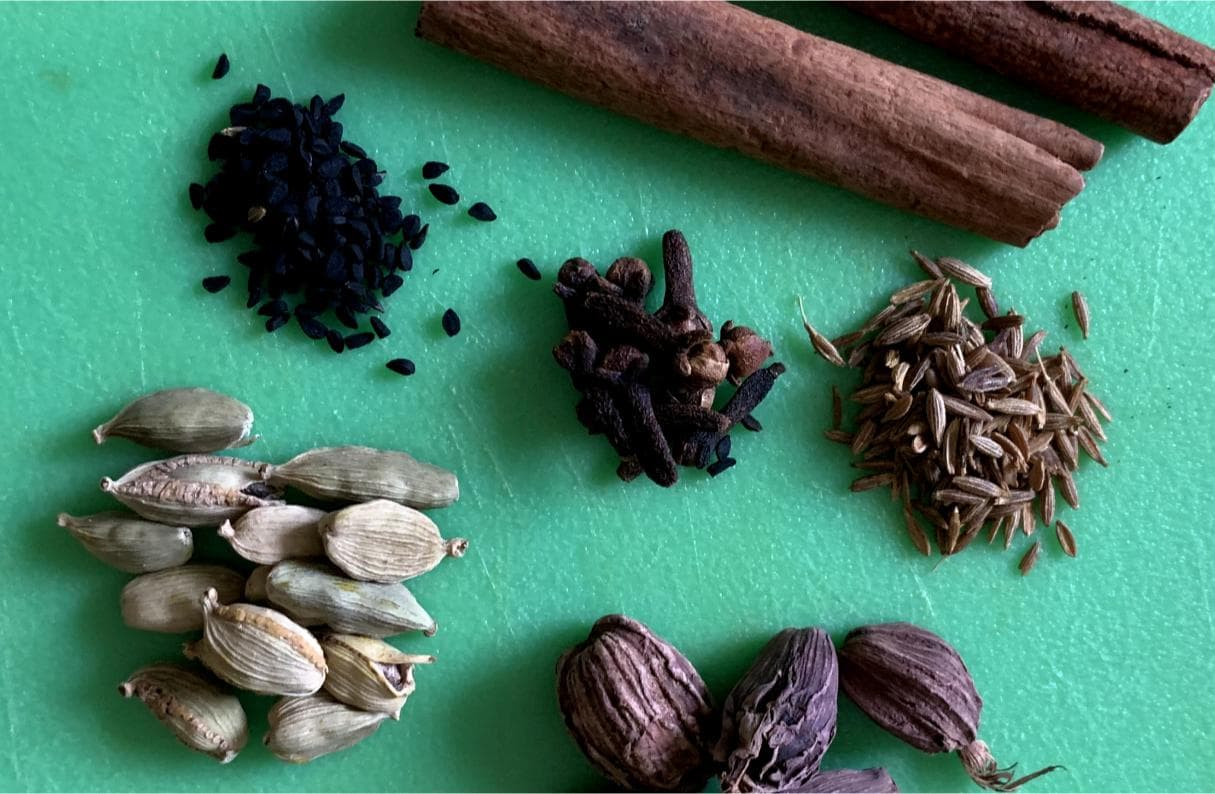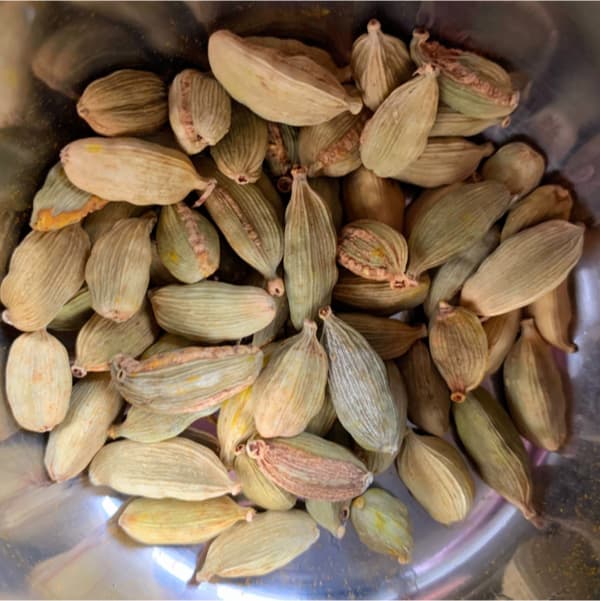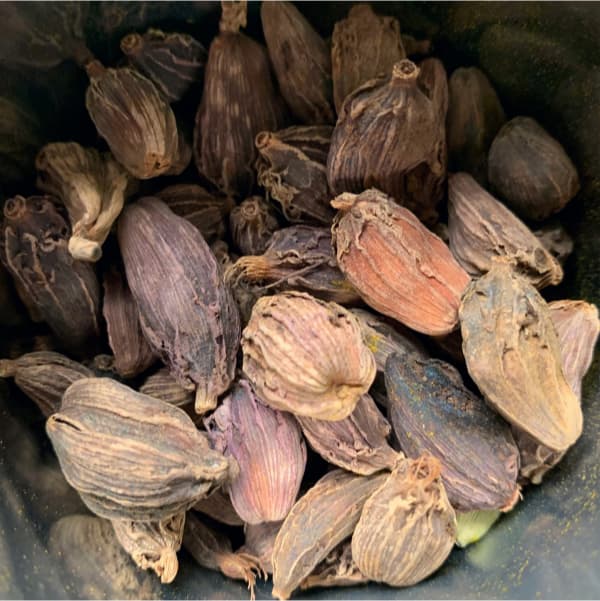Despite my mother's best efforts, it took me an embarrassingly long time to realise just how important whole spices are in Indian cuisine. Once I got used to encorporating them and started to experiment, I was amazed I had survived without them! So here's my personal rundown of the 8 essential Indian whole spices you should always have around.
It's not an exhaustive list, sure. Nevertheless, these are the whole spices I use the most, so you can rest assured that they won’t be forgotten at the back of the cupboard!

1. Green cardamom
These little seed pods might be a shock to unexpectedly bite into, but they are something no spice lover should be without. And if they're the only whole spice you have around, they'll still help take your curry to the next level.
Fry two or three in oil for 30 seconds or so before adding your onions to add a bright, herbal and almost citrus taste to your dish.
2. Black cardamom
Smokier and stronger than green cardamom, black cardamom is an essential whole spice for deepening the flavour of aromatic curries. I find it works especially well in conjunction with green cardamom in chicken dishes.
If using three green cardamom, you'll probably only need one black one; if using 6 cardamom, use 2-4 black, etc.


3. Cumin seeds
You may already have the widely-used powdered cumin in your spice rack. However, cumin seeds themselves serve a different purpose, so you should try to keep both in stock. They go with pretty much everything, but I like using them together with black mustard seeds.
You can actually make cumin powder at home with the seeds if you’re feeling extra adventurous! And if you toast the seeds in a dry pan first, you've made roasted cumin powder!
4. Black mustard seeds
These are similar to brown mustard seeds but pack more of a punch. That being said they're far from an unusual taste and are super versatile. I love them in vegetarian dishes like saag aloo or roasted sweet potato.
5. Cloves
Cloves have a strong and almost medicinal taste on their own, but when used to enhance curries they really make a sauce sing. Pair with black and green cardamom in aromatic curries to bring everything to life.
The humble clove's combination of spiciness and sweetness means they're popular in cakes and deserts too.
6. Black onion seeds
Ever noticed those little black speckles in naan and wondered what they are? Those are black onion seeds. Often underappreciated, these seeds go nicely with black mustard seeds and you don’t have to use very much to taste them in your food.
I like to use them in daal and rice dishes.
7. Cinnamon
If you’re not using cinnamon sticks in your curries or biryani, you’re missing out. This beautiful and versatile spice goes wonderfully in rich meat dishes, adding a warming sweetness to cut through all the other savoury flavours vying for your attention.
Even a single small shard of cinnamon can make a huge difference, so don't feel like you need to buy huge amounts.
8. Bay leaves
Common in Northern Indian cuisine, bay leaves are among the less pungent and noticeable spices. Nevertheless, they're very widely used. Herbal rather than spicy, they're also useful in Mexican, Italian and even British cuisine, so it's worth making sure you always have some around.
If you can’t get your hands on Indian bay leaves, use whatever kind you can find in your supermarket. And remember to take them out of your sauce/soup/curry before serving!
SPECIAL MENTION: black pepper
This one may go without saying. However, if you only stock powdered pepper in your spice cupboard, it’s time to invest in a tub of peppercorns and a nice pepper grinder. Black pepper is actually native to India, and brings an element of heat to many dishes which is decidedly different to that of chillies or fresh ginger.
You can toss a few whole peppercorns in with the rest of your whole spices at the start of the cooking process, or freshly grind some up to add in with your powdered spices. Even if you're using it in a powdered form, grinding it yourself in a grinder or with a pestle in mortar will lead to a superior taste.
I hope you found this list of essential Indian whole spices useful. And enjoy experimenting with Indian recipes to your heart’s content. Anjum Anand’s work is a great starting point if you haven’t checked her out yet!
